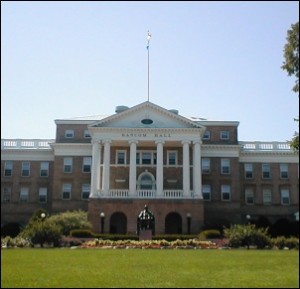Doing Doors in Kewaskum
 Last Tuesday, a consent judgment was entered in the Eastern District of Wisconsin resolving a free speech claim brought by a self-described “traveling evangelist.” The plaintiff Michael Foht was told by the Kewaskum Police that he could distribute religious literature only to people who said that they wanted it. This meant that he could not leave literature at private residences (he must first knock on the door and ask permission) or leaflet automobiles.
Last Tuesday, a consent judgment was entered in the Eastern District of Wisconsin resolving a free speech claim brought by a self-described “traveling evangelist.” The plaintiff Michael Foht was told by the Kewaskum Police that he could distribute religious literature only to people who said that they wanted it. This meant that he could not leave literature at private residences (he must first knock on the door and ask permission) or leaflet automobiles.
This instruction was based on an extraordinarily broad village ordinance which prohibited the distribution of “any printed matter on literature on public or private property” or the placement of such literature on motor vehicles. The ordinance had an exception for the distribution of literature to persons “willing to accept” it.
Foht apparently attempted to clarify the matter with the village attorney, who failed to return his calls. That turned out to be expensive.
Foht filed suit and the village, finally obtaining the proper legal advice, repealed the ordinance. The consent decree declares that the ordinance was facially unconstitutional and should not have been applied to Foht and awards him $11,000 in attorneys fees and costs.
The result is unexceptional, but the fact of the case may be instructive. What the law requires and whether it is complied with are two different matters. I doubt that this type of ordinance was only to be found in Kewaskum, Wisconsin.

